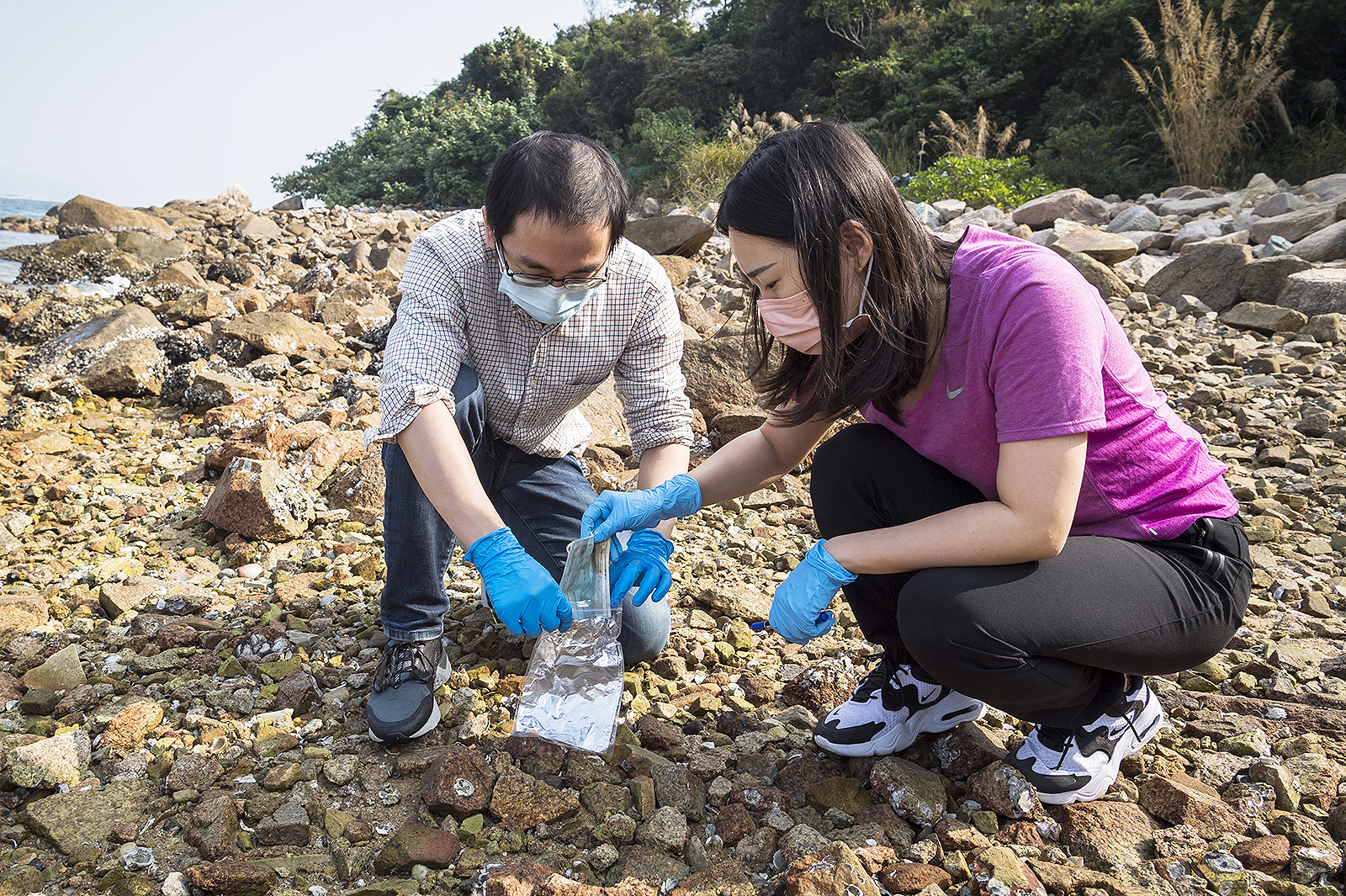
The inappropriate disposal of surgical masks could cause serious microplastic pollution, equivalent to seriously polluting more than 54,800 Olympic swimming pools of seawater annually, researchers from City University of Hong Kong (CityU) have discovered.
The growth and reproduction of marine organisms could be affected, too.
Surgical masks are heavily used for personal protection during the Covid-19 pandemic. Scientists estimate that the global demand for surgical masks reached 129 billion per month by 2020, while a total of 1.56 billion masks were inappropriately released into the oceans in 2020.
“Polypropylene is the main material widely used in surgical masks. It is a kind of commodity plastic that could fragment under the effects of heat, wind, ultraviolet radiation, and ocean currents, eventually forming microplastics,” said Dr Henry He Yuhe, Assistant Professor in the School of Energy and Environment (SEE) and a member of the State Key Laboratory of Marine Pollution (SKLMP).
To figure out the extent and magnitude of this pollution issue and its potential impacts, Dr He and his team have investigated the release of microplastics from polypropylene surgical masks in seawater and evaluated the chronic toxicity of the microplastics on copepods (Tigriopus japonicus), a small marine crustacean.
“We performed an experiment in the laboratory to mimic the natural process of microplastics released from discarded masks so as to estimate the volume released into the marine environment,” he explained.

On the basis of their study and other relevant data, the team estimated that more than 1,370 trillion microplastics would be released to the coastal marine environment from all the surgical masks discarded in 2020.
“Taking into consideration a serious pollution scenario, which is 10 microplastics per millilitre of seawater, 1,370 trillion microplastics can pollute 137 million cubic metres of seawater,” he said.
Since microplastics can cause adverse effects on the growth and development of marine organisms through ingestion and entanglement, the team performed chronic toxicity tests using marine copepods.
“As shown in our study, microplastics released from masks can be ingested and accumulated in the intestines of marine copepods, reducing their reproduction fecundity by up to 22%,” Dr He said.
Copepods are one of the most abundant classes of zooplankton, and primary consumers, in the marine environment, playing a critical role in the bioaccumulation of contaminants.
Microplastics can enter the body of higher marine organisms such as fish and shrimp through predation and ingestion, resulting in potential harmful effects.
In addition, the reduced fecundity of copepods can lead to a reduction in food resources for higher marine organisms, thereby threatening the balance of the marine ecosystem.
To minimise the risk of this emerging threat, better environmental management, policy, and law enforcement for ensuring the proper disposal of surgical masks are necessary.
The CityU team’s research paper titled “Release of Microplastics from Discarded Surgical Masks and their Adverse Impacts on the Marine Copepod Tigriopus japonicus” has been published in Environmental Science and Technology Letters.
The first author of the paper is Sun Jiaji, PhD student in SEE and SKLMP. The corresponding author is Dr He. The collaborators are Professor Kenneth Leung Mei-yee, Chair Professor, Department of Chemistry and Director of SKLMP; Yang Shiyi, MSc student, SEE and SKLMP; Dr Zhou Guangjie, Postdoc, SKLMP; Dr Zhang Kai, Postdoc, SKLMP; Lu Yichun, PhD student, SEE and SKLMP; Dr Jin Qianqian, Postdoc, SEE and SKLMP; and Professor Paul Lam Kwan-sing, former Director of SKLMP.






